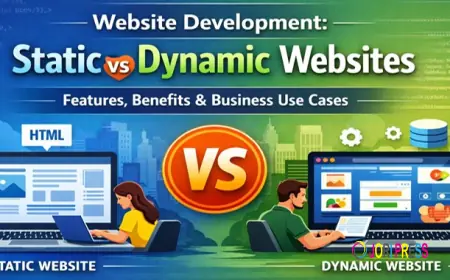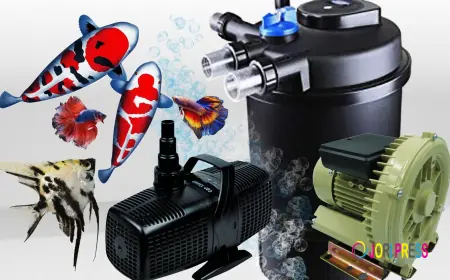Sustainable Business Practices Driving Growth
In recent years, there has been a noticeable shift in how businesses operate. More and more companies are adopting sustainable business practices, not just because it’s the right thing to do, but because it actually drives growth.

In recent years, there has been a noticeable shift in how businesses operate. More and more companies are adopting sustainable business practices, not just because it’s the right thing to do, but because it actually drives growth. The idea that sustainability and profitability are opposing forces is quickly becoming outdated. As I’ve explored this shift, I’ve realized how businesses—big and small—are embracing sustainability to improve their bottom lines, attract new customers, and set themselves apart in competitive markets.
For me, the most interesting part is how sustainable business practices aren’t just about reducing waste or going green—they’re also about creating long-term value that benefits both the company and the environment. As someone who’s always looking for ways to improve efficiency and make more conscious choices, it’s clear that integrating sustainability into business strategies isn’t just a trend; it’s the future of success.
Why Sustainability Matters in Business
Sustainability is no longer a buzzword reserved for environmentalists or niche markets. It’s become an integral part of how businesses operate. And here’s why it matters:
-
Consumer Expectations: More consumers today are making purchasing decisions based on the sustainability practices of a company. Whether it’s a product's environmental impact or how a company treats its employees, people want to support brands that align with their values. For example, as a regular vape enthusiast, I’ve started noticing brands that highlight their commitment to sustainability, whether it’s through eco-friendly packaging or using ethically sourced ingredients. This is something I value as a consumer, and it’s clear that other people feel the same.
-
Cost Savings: A sustainable approach to business often leads to cost savings in the long run. By reducing waste, improving efficiency, and sourcing responsibly, businesses can lower operational costs. It’s like when I started choosing vape juices that were made with care for quality and the environment, like Vanilla Custard Crave. Not only did it enhance my vaping experience, but I could feel good about supporting a brand that prioritizes responsible sourcing. Similarly, businesses that focus on sustainability often find that their investments pay off in reduced waste and better resource management.
-
Long-Term Growth: Adopting sustainable practices can position businesses for long-term success. This isn’t just about doing the right thing now—it’s about making decisions that ensure a company can thrive in the future. Companies that adopt sustainable practices early on are often more adaptable and resilient in the face of changing regulations or consumer preferences. Just like how the vaping industry is adapting to new regulations, sustainable companies are positioning themselves to grow with the evolving market.
Key Sustainable Business Practices
It’s clear that sustainability is becoming a driving force in business growth, but what exactly does this look like in practice? There are several strategies that businesses can implement to not only reduce their environmental footprint but also to create value.
-
Eco-Friendly Packaging: One of the simplest ways businesses can become more sustainable is by switching to eco-friendly packaging. This can involve using recyclable materials, reducing packaging waste, or offering refillable options. As a consumer, I appreciate when brands in the vaping space, like those producing Vanilla Salt Nic flavors, choose packaging that’s both functional and environmentally responsible. It’s a small change that makes a big difference in the long term.
-
Energy Efficiency: Energy efficiency is another key aspect of sustainable business practices. By investing in energy-efficient technologies, businesses can significantly reduce their carbon footprint. This not only benefits the environment but also helps businesses save on energy costs. Whether it's a factory or a small shop, switching to LED lights, using renewable energy sources, or upgrading to energy-efficient appliances can have a lasting impact.
-
Sustainable Sourcing: The way a company sources its materials can have a huge impact on its overall sustainability. Businesses that prioritize sustainable sourcing are looking at every step of their supply chain to ensure it’s as environmentally friendly as possible. For example, in the vaping industry, companies sourcing high-quality, natural ingredients for their e-liquids (like Blueberry Custard Vape flavors) are leading the way in ethical sourcing practices. It not only supports the environment but also appeals to conscious consumers who care about where their products come from.
The Financial Benefits of Going Green
Sustainability isn’t just good for the environment—it can also be a powerful driver of business growth and financial success. Here’s how going green can pay off:
-
Attracting a Loyal Customer Base: Consumers today are more informed than ever before. They’re aware of the impact their purchases have on the environment and are actively choosing to support brands that align with their values. For businesses, this translates into increased customer loyalty and brand advocacy. A company that shows genuine concern for sustainability, like offering products with high-quality ingredients in eco-friendly packaging, will likely see its customer base grow as more people turn to them for products they trust.
-
Competitive Advantage: In a crowded market, having a sustainable edge can set a company apart from its competitors. If two businesses offer similar products, but one is committed to sustainable practices while the other is not, consumers are likely to choose the more sustainable option. This can be especially important in industries like vaping, where consumers care about both the product quality and the values behind the brand. When I choose a vape juice like Vanilla Custard Crave, it’s not just about flavor—it’s about supporting a brand that practices sustainability.
-
Access to Funding and Grants: There’s also an increasing availability of grants and funding for companies that implement sustainable practices. Governments, non-profits, and even private investors are putting their money behind businesses that are working toward a more sustainable future. This opens up new opportunities for growth, as companies can use these funds to scale their sustainable practices even further.
Looking Ahead: The Future of Sustainable Business
The future of business is undeniably green, and that’s an exciting prospect. More companies are beginning to realize that sustainability isn’t just a fad—it’s the future of business. As the world continues to face environmental challenges, businesses that prioritize sustainability will be in a better position to grow and thrive.
-
Embracing Circular Economy Models: More businesses are moving towards a circular economy, where products and materials are reused, recycled, or repurposed instead of being discarded. This shift will drive innovation and lead to new ways of designing products and services that minimize waste.
-
Increased Focus on Social Responsibility: Sustainability is about more than just the environment—it’s also about social responsibility. Businesses are becoming more aware of their role in communities and the broader society. This focus on social sustainability, whether it’s ensuring fair labor practices or investing in community development, will continue to grow in importance.
-
Technological Advancements: As technology continues to evolve, businesses will have access to even more innovative solutions for sustainability. From artificial intelligence to smart automation, businesses will have the tools to streamline their operations and reduce their environmental impact.
For companies, the future is bright if they can continue to integrate sustainable practices into every aspect of their operations. From product development to customer service, the more businesses focus on long-term sustainability, the more they will see the benefits, not just for their profit margins, but for the world around them.
In conclusion, sustainable business practices aren’t just a moral imperative—they’re also a smart business strategy. Whether it’s adopting eco-friendly packaging, sourcing products responsibly, or supporting mindful consumption through products like Vanilla Custard Crave, companies that focus on sustainability are positioning themselves for long-term growth. With consumers more aware than ever of the impact of their choices, businesses that prioritize sustainability will continue to lead the way into the future.
What's Your Reaction?
 Like
0
Like
0
 Dislike
0
Dislike
0
 Love
0
Love
0
 Funny
0
Funny
0
 Angry
0
Angry
0
 Sad
0
Sad
0
 Wow
0
Wow
0

















































